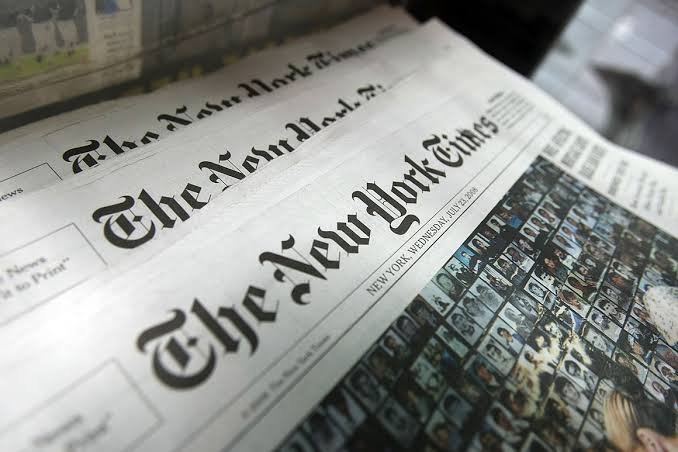Why I’m No Longer a Fan of the New York Times: A Personal Reflection
In recent years, many long-time readers of The New York Times, including myself, have found themselves drifting away from the paper that was once a trusted source of news. The reasons for this shift are varied, but they often stem from concerns about the paper’s direction, content, and overall approach to journalism. In this blog post, I’ll explore why I’m no longer a fan of The New York Times (NYT), offering insights into the experiences and frustrations that have led me to this decision.
The New York Times: A Changing Landscape
The New York Times has long been a staple in American journalism, known for its in-depth reporting, investigative journalism, and comprehensive coverage of world events. For decades, the NYT was the go-to source for anyone seeking to understand complex issues or stay informed about the world. However, over time, I’ve noticed significant changes in how the paper operates, and not all of these changes have been for the better.
Shifts in Editorial Direction
One of the primary reasons I’ve grown disillusioned with The New York Times is its editorial direction. The paper seems to have shifted from a more balanced approach to one that feels increasingly polarized. While every news outlet has its biases, it seems that the NYT has moved towards presenting news in a way that aligns more with specific ideological perspectives rather than offering diverse viewpoints. This shift can make the coverage feel one-sided and less trustworthy, especially for readers looking for an objective take on the news.
The Influence of Clickbait and Sensationalism
Another factor contributing to my waning interest in The New York Times is the rise of clickbait and sensationalism. In the age of digital media, the pressure to generate clicks and attract online traffic has led even reputable outlets like the NYT to adopt tactics that were once considered beneath them. Headlines are often more sensational, and the content sometimes prioritizes entertainment over substance. This shift diminishes the quality of journalism and leaves readers questioning the credibility of the information presented.
A Decline in In-Depth Reporting
There was a time when The New York Times was synonymous with in-depth, investigative journalism. However, in recent years, it seems that there has been a decline in the depth and rigor of the reporting. While there are still examples of excellent journalism within the paper, these pieces feel few and far between compared to the steady stream of high-quality content that once defined the NYT. The emphasis on quick, surface-level reporting has left a gap that the paper has struggled to fill.
The Impact on Trust and Credibility
Trust is the cornerstone of any news organization, and when that trust is eroded, readers start to look elsewhere for their news. For me, the changes in The New York Times’ editorial direction, the rise of sensationalism, and the decline in in-depth reporting have all contributed to a growing sense of skepticism about the paper’s reliability. It’s not that the NYT has become entirely untrustworthy, but rather that it no longer feels like the unbiased, thorough source of news that it once was.
Exploring Alternatives to The New York Times
Given my dissatisfaction with The New York Times, I’ve begun exploring alternative news sources that better align with my expectations for quality journalism. Many other outlets, both mainstream and independent, offer the in-depth analysis, balanced reporting, and journalistic integrity that I once relied on the NYT for. These alternatives include both traditional news sources like The Washington Post and independent platforms like ProPublica and The Guardian, which have maintained a commitment to thorough and unbiased reporting.
Conclusion: Moving On from The New York Times
The decision to step away from a long-time news source like The New York Times isn’t easy, especially when it has played such a significant role in my understanding of the world. However, as the paper has changed, so too have my needs and expectations as a reader. While the NYT will always hold a place in the history of journalism, it no longer holds the place it once did in my daily routine. Instead, I’ve found value in seeking out diverse perspectives from a range of other sources that prioritize the quality and integrity of their reporting.
FAQs
1. Why have you stopped reading The New York Times? I’ve stopped reading The New York Times primarily because of its shift in editorial direction, the rise of sensationalism, and a decline in in-depth reporting. These changes have affected the quality and reliability of the content.
2. Are there any specific events that triggered your decision? No single event led to my decision; rather, it was a gradual realization that the paper no longer met my expectations for balanced and thorough journalism.
3. What alternative news sources do you recommend? I recommend exploring a mix of mainstream and independent news sources like The Washington Post, ProPublica, and The Guardian, which offer more balanced and in-depth coverage.
4. Do you think The New York Times can regain your trust? It’s possible, but it would require a return to more balanced reporting, a reduction in sensationalism, and a renewed focus on in-depth journalism.
5. Is The New York Times still a reputable news source? While The New York Times is still reputable, my personal concerns with its recent direction have led me to seek out other news sources that align better with my expectations.
6. How do you stay informed now? I stay informed by diversifying my news consumption, reading from a variety of sources to get a well-rounded view of current events.




